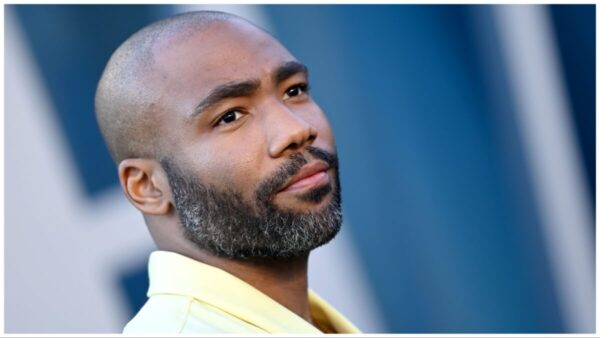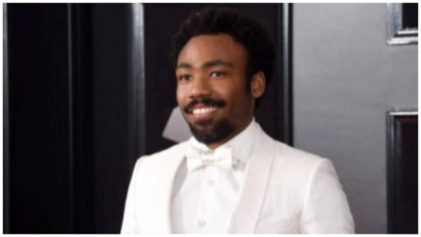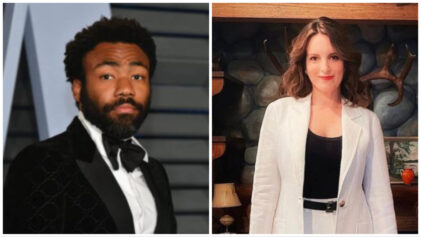Executive producer Donald Glover says the rumor that he does not like Black women is not only wrong, but it is hurtful.
While promoting his new film, “Mr. & Mrs. Smith,” the Emmy Award-winning actor, also known for his winning five Grammy Awards under the rapper alias Childish Gambino, responded to the accusation after two years of discourse.

In an interview with The Hollywood Reporter, Glover was asked, “Despite mentoring Black women like Malia, there’s this narrative that accuses you of misogynoir, Donald. You famously interviewed yourself for Interview magazine a few years ago, and you asked yourself, ‘Are you afraid of Black women?’ Why did you wade in?”
He said he did so because he felt it was something that people often discussed among themselves but never directly asked him about.
“I felt like people really don’t want to know. It is a better narrative,” he said, framing why he asked himself the question. “But anybody who actually knows me knows how much that hurts me.”
His co-star Maya Erskine, who sat near to him during the interview, seems to be shocked that he is bothered by what people think, asking, “It does?”
“Of course,” Glover replied. “But I also realize it doesn’t matter. People are not going to read this and be like, ‘Wow, I was wrong.’
“It hurts you, but what’s your process after, to be like, ‘But I don’t care?’” Erskine says.
The “Star Wars” actor says that he deals with it by focusing on the people who do matter to him, such as his children, his mother, or colleagues like Quinta Brunson, who really knows him.
Glover first addressed the notion that he does not like Black women in 2022. The conversation stemmed from the mock “Interview” back-and-forth where he addressed a critique from Dr. Umar Johnson, who blasted him at the time for featuring a white woman in his “This Is America” video.
Johnson suggested that placing the white woman in the video “diluted” Glover’s message.
“Childish Gambino’s video contained powerful metaphors but once the contradiction of a White Queen surfaced it diluted his message,” Johnson tweeted in 2018. “Yes, he has a right to discuss the Black Experience but wanting to have that experience with a white woman clearly says he doesn’t value it enough. “
"Childish Gambino's video contained powerful metaphors but once the contradiction of a White Queen surfaced it diluted his message. Yes, he has a right to discuss the Black Experience but wanting to have that experience with a white woman clearly says he doesn't value it enough"
— Dr. Umar Ifatunde (@DrUmarJohnson) May 9, 2018
In response, Glover asked himself, “Are you afraid of Black women?” He added in the conversation with himself, “I feel like your relationship to them has played a big part in your narrative.”
Glover, who is recently married to a Asian-American woman, said he feels the misogynoir accusation against him is actually a questioning of his “Blackness.”
The idea that he does not value or hates Black women could be derived from how he talks about them. While directing Dominque Fishback, the brilliant young African-American actress who starred in the lead of his 2023 series, “Swarm,” he told her to think of her character as an “animal” and “less like a human.”
In talking about Fishback’s character Dre, he likened her to a “dog.”
Glover said in an interview with Vulture, “I don’t think Dre is that layered. I wanted her performance to be brutal. It’s a raw thing. It reminds me of how I have a fear with dogs because I’m like, ‘You’re not looking at me in the eye. I don’t know what you’re capable of.’”
Beyond the “Swarm” references, people also believe that Glover has issues with Black women because so many of his songs as Childish Gambino celebrate his supposed fetish for Asian women and other non-Black women. This can be seen in songs like “Bonfire” or “You See Me.”
Critics also look at how Glover portrayed Black women in his hit television series “Atlanta.”
Many argue that their depiction is limited, primarily serving to fulfill racist and sexist stereotypes associated with Black and brown women. Throughout all four seasons, critics contend, those female characters were often portrayed as loud and exaggerated caricatures.
Still, Glover says in 2024 it “hurts” him to think that people don’t believe he loves women in his race — but hopes they will eventually trust that he does after hearing him speak out.

